Big Red Book
Celebrating television's This Is Your Life
Michael DENISON (1915-1998)
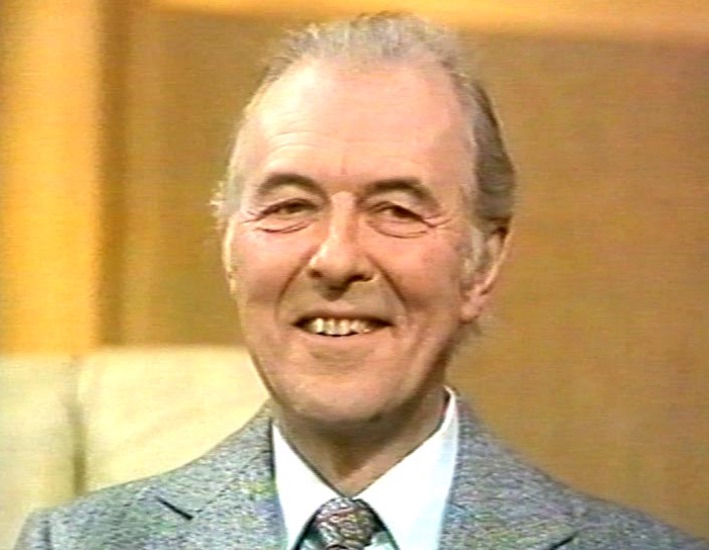
THIS IS YOUR LIFE - Michael Denison, actor, was surprised by Eamonn Andrews while having lunch at the Inn on the Park in London's Park Lane.
Michael, who was born in Doncaster and brought up in London, won a scholarship to Harrow, where he first began acting. Having graduated in modern languages at Oxford University, he attended the Webber Douglas Academy of Dramatic Art, where he met Dulcie Gray, a fellow student, who he later married.
During the Second World War, Michael served in the Middle East and Greece as an officer in the Intelligence Corp of the Royal Signals. After the war he returned to acting, and formed a successful partnership with Dulcie, appearing in numerous West End and touring theatrical productions as well as several films, including My Brother Jonathan and The Glass Mountain.
Michael Denison was a subject of This Is Your Life on two occasions - surprised again by Michael Aspel in March 1995 at Teddington Lock - for a joint tribute with his wife Dulcie Gray.
"I don't believe it! Well, I can say nothing!"
programme details...
- Edition No: 458
- Subject No: 455
- Broadcast date: Wed 23 Feb 1977
- Broadcast time: 7.00-7.30pm
- Recorded: Wed 26 Jan 1977
- Venue: Euston Road Studios
- Series: 17
- Edition: 18
- Code name: Writ
on the guest list...
- Dulcie Gray - wife
- Sally Ann Howes
- Jeremy Brett
- Ron Randell
- Dorian Williams
- Pam Rose
- Barbara Mullen
- Rodney Millington
- Bobby Melvin
- Bobby Blair
- Sam Derry
- Bob Lennard
- Val Pringle
- Tito Gobbi Filmed tributes:
- Charlie Chester
- Juliet Mills
- Richard Todd
related appearances...
- Sam Derry - Feb 1963
- Dulcie Gray - Mar 1973
- Noel Barber - Dec 1979
- Brian Johnston - Nov 1982
- Liza Goddard - Jan 1984
- Gabrielle Drake - Apr 1987
- Richard Todd - Oct 1988
- Evelyn Laye - Dec 1990
- Juliet Mills - Oct 1992
- Derek Fowlds - Mar 1993
- Pat Kirkwood - Jul 1994
production team...
- Researcher: Debbie Gaunt
- Writers: Tom Brennand, Roy Bottomley
- Directors: Royston Mayoh, Terry Yarwood
- Producer: Jack Crawshaw
- names above in bold indicate subjects of This Is Your Life
Michael Denison and Dulcie Gray
joint tribute
spotlight on the stars
surprised again!
two's company
keeping it in the family
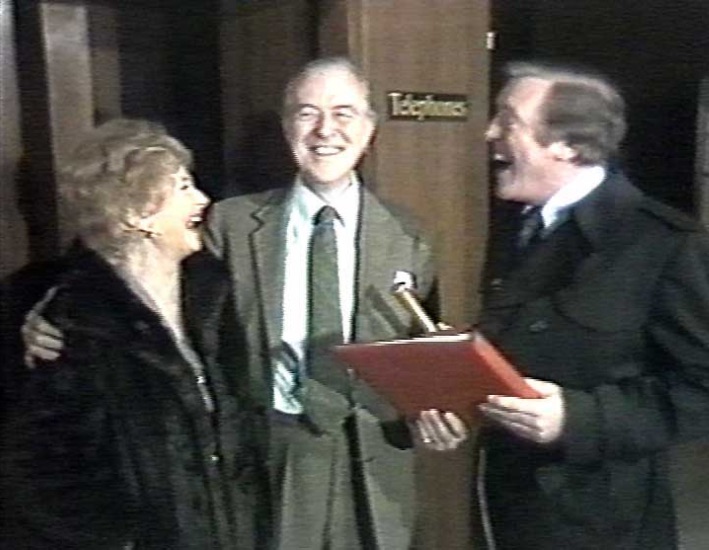
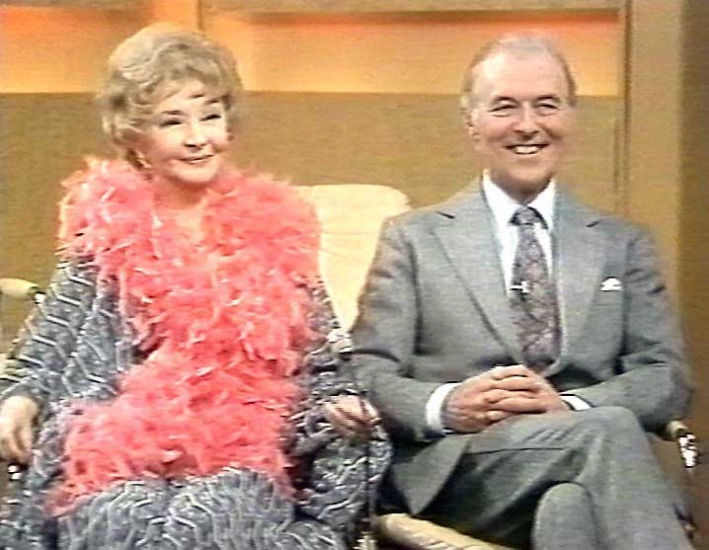
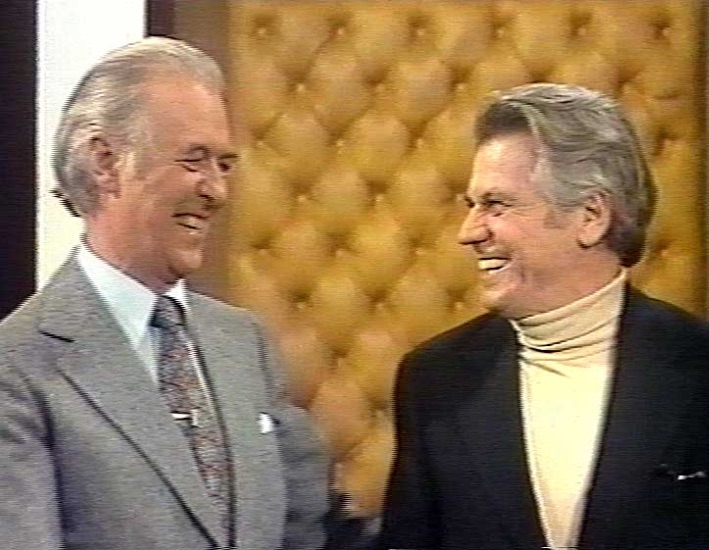
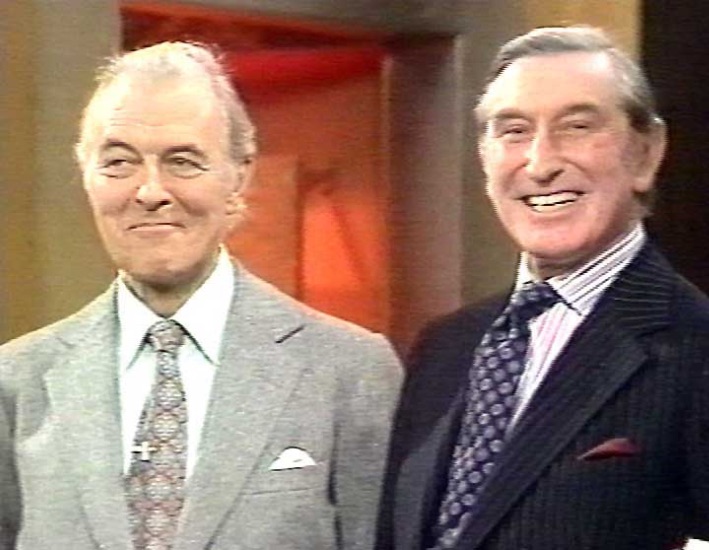
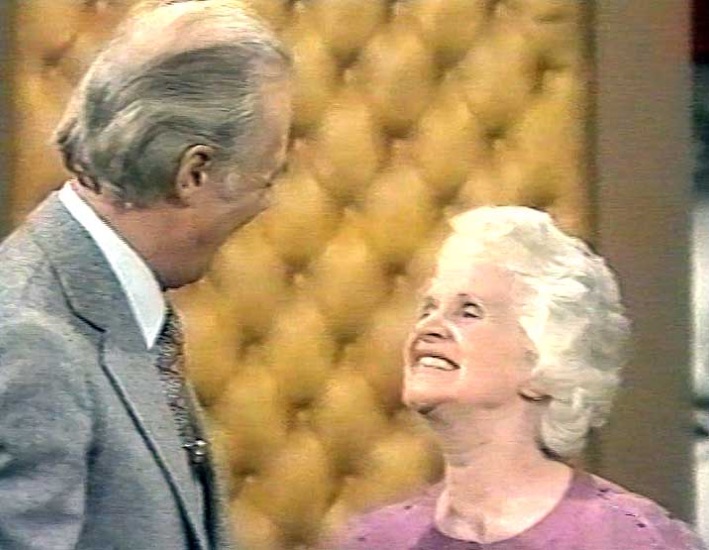
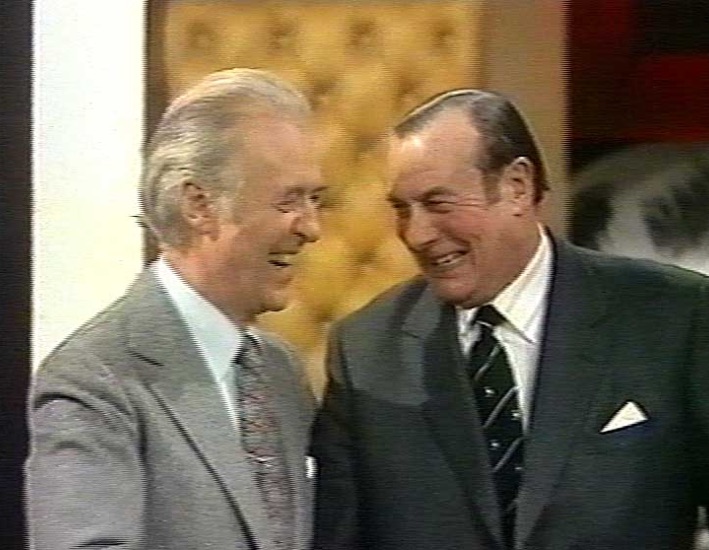
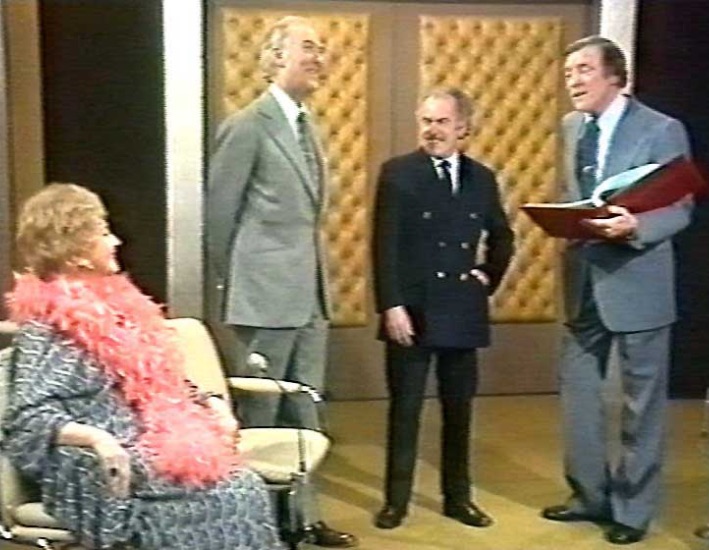
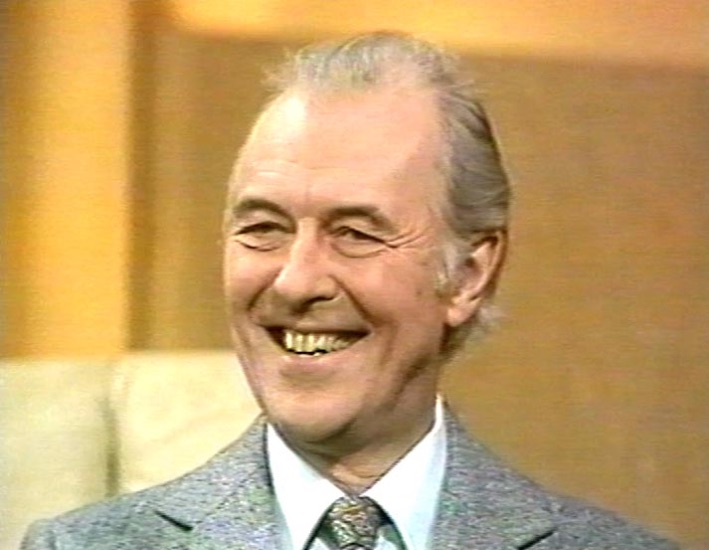
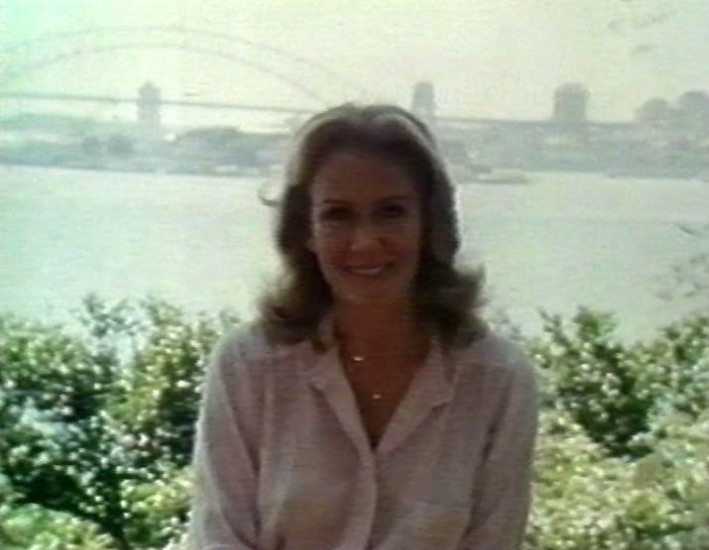
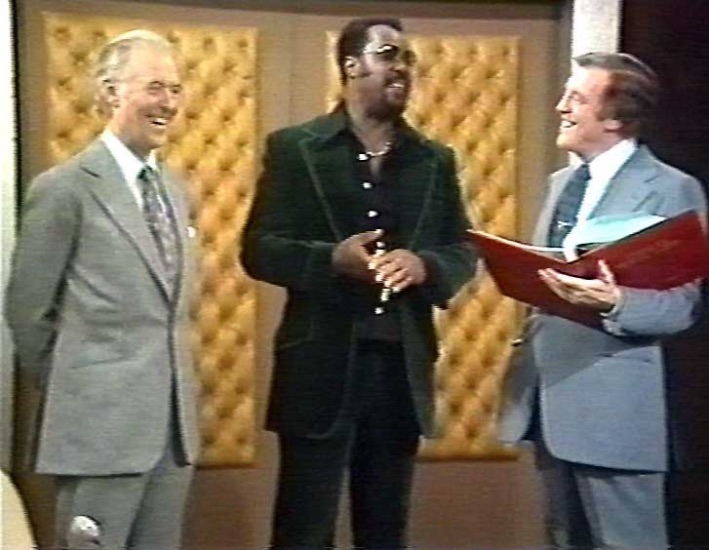
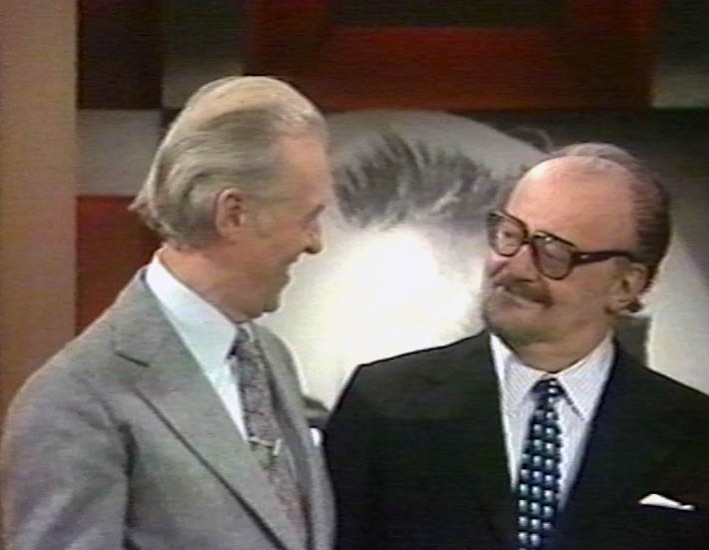
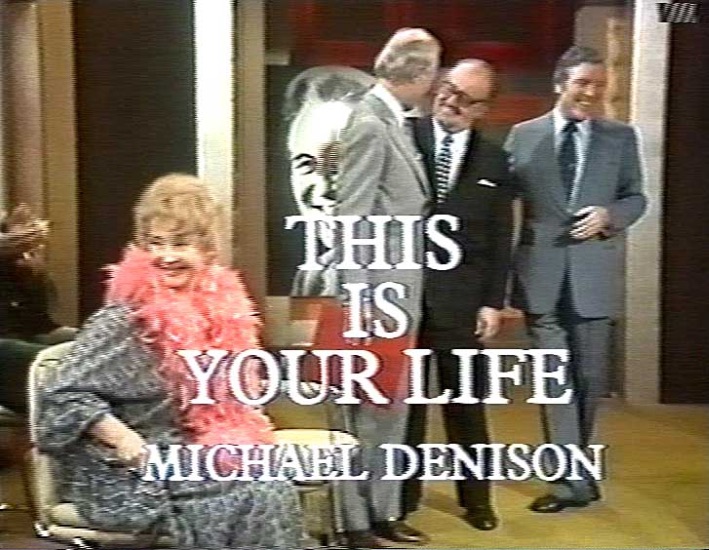
Screenshots of Michael Denison This Is Your Life
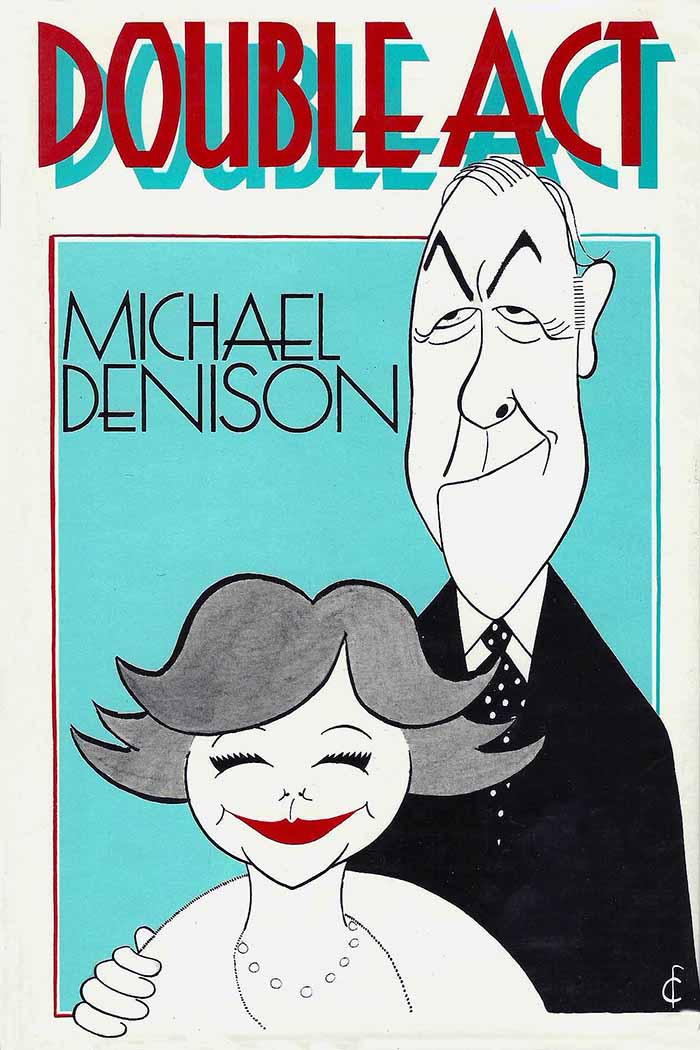
Before moving to Canada, Robert and Elizabeth played seasons at Guildford and Brighton. For the former I was able to work from home. One day Dulcie said she was going up to the London flat to have discussions with a butterfly expert about her forthcoming book, so would I join her there after my show?
As it happened I had received an unexpected invitation from Ronnie Millar to lunch with him the next day at The Inn on The Park – unexpected because of the choice of rendezvous and Dulcie's exclusion from the party, and because of Ronnie's insistence that he should pick me up at the flat.
'Why The Inn on The Park?' I asked him as I got into the maroon Rolls which in those days he maintained as though it were a clapped-out banger. 'Is it a regular haunt of yours?' 'Never been there before,' he replied. 'But after lunch I'm meeting an American there who is interested in taking the show to the States after Canada; and I'm hoping to persuade you to go along with the idea.' I had no wish to make my American debut in my least favourite part, but this seemed no time to say so, so I made some non-committal reply.
Our arrival at the hotel had a VIP quality about it which seemed surprising for two people who had never been there before; but perhaps, I reflected, it was their normal way of receiving guests. I had a very sinus cold that day and by the middle of the meal was feeling quite ill.
'Forgive me, Ronnie,' I said, 'but if I'm to give anything like a performance this evening I think I'd better go home now and lie down.' 'Please just wait till I've finished my lunch,' said Ronnie firmly. 'And have a brandy. I'm going to.' It was becoming a nightmare, and I still hadn't categorically refused America. A waiter came over to me. 'You're wanted on the telephone, sir.' 'But nobody knows I'm here' 'Dulcie does,' said Ronnie smoothly.
I was led to the middle of three call-boxes. 'Darling,' said Dulcie, 'if you look in the box beside you you'll see an old friend.' 'There's no-one there,' I said looking to the right. 'There must be,' said Dulcie. So I looked to the left and there was Eamonn grinning cheerfully with a red book.
So I had been caught as completely as Dulcie, and – my sinus forgotten – I enjoyed 'My Life' as much as she did hers.
Dulcie had done particularly well in the background, and I had a wide range of friends to greet me. There was Ron Randell, with whom a close relationship goes back to the strange affair of Sweet Peril in 1952 (he had flown in from America); Dorian Williams who had introduced me at school to the intoxication of acting; Pam Rose who, with her brother (Pat Gibson) and her parents, had persuaded me to go to the Webber-Douglas where I was to meet Dulcie; Rodney Millington who had enabled us to get married on the security of a six-week season in Aberdeen at a joint salary of £15; Sam Derry, a heroic figure in German-occupied Rome, who later became my Colonel (I had been on his 'Life' many years before); Cheerful Charlie Chester, reminiscing about Stars in Battle Dress in which I spent the nine months between the end of the war in Europe and my 'demob'; Bob Lennard, the architect of my film career; Val Pringle – the Black Mikado in person; recorded messages from Juliet Mills and Richard Todd, and – apparently – from Tito Gobbi, until with a splendid coup de theatre, it turned out to be the great man himself.
Most touching of all was the appearance of Bobby Melvin and Bobby Blair, two of the squad of twenty-four (twenty-three of them from the Glasgow Post Office) with whom there had been a series of reunions whenever we played in Scotland after the war. Bobby Blair was the calmer of the two; Bobby Melvin was tremendously excited, and his accent became almost unintelligible except to fellow Scots and myself. His life, which ended prematurely some years ago, had been a tough one, but there was never a sign of a 'chip' when faced with the contrast in our post-war lifestyles. Dulcie loved him as much as I did. 'He's so proud of you, Michael,' she said to me after one of those meetings, 'it's as though he'd invented you.'
Dulcie's butterfly expert and Ronnie's American, though real enough, had been used to shepherd me up to the starting line.

While we were still on tour at Guildford before going to Canada, Michael's This Is Your Life was done.
Ronnie Millar lured him to lunch at the Inn on the Park, from where Michael at once wanted to go home as a heavy cold was threatening to smother him.
Ronnie had enormous difficulty in keeping him long enough for Eamonn to catch him with the red book. In the end, Michael too enjoyed the experience.
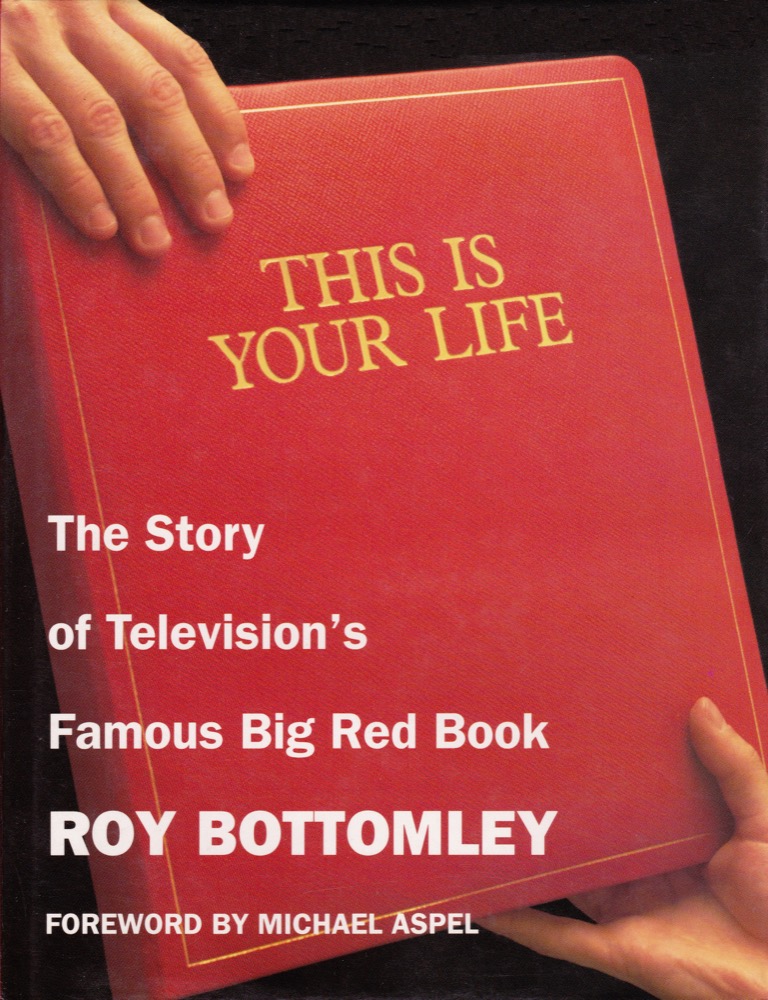
When we surprised Dulcie at the Richmond Theatre on stage in March 1973, she and Michael had been married for thirty-five years...
Dulcie co-starred with James Mason in They Were Sisters, and the great film actor spoke from his home in Switzerland
Richard Attenborough spoke of the play Brighton Rock, which made stars of them both; her big film success with husband Michael was in 1948 in The Glass Mountain featuring opera star Tito Gobbi.
When the tables were turned four years later, Michael was at London's Inn on the Park, believing Dulcie was at home. His name was paged and he was called to a foyer telephone booth to take a call from Dulcie.
Over the phone, Dulcie told him, 'I've got someone with me. Eamonn Andrews.' She put Eamonn on the line, and he said, 'Michael, take a look in the next phone booth.'
When he did, there was Dulcie - and Eamonn with the Big Red Book.
Series 17 subjects
Frankie Howerd | Wilfred Hyde-White | John Blashford-Snell | Mervyn Davies | Pam Ayres | Ivy Benson | Jim WicksJoss Ackland | John Inman | Patrick Cargill | Sheila Hancock | Tom O'Connor | Florence Priest | Tony Britton | Molly Weir
Anthony Quayle | Alfred Pavey | Michael Denison | Mary Chipperfield | Leonard Sachs | Cyril Fletcher | Matt Monro
Tony Greig | John Frost | Brian Rix | Alberto Semprini | Louis Mountbatten